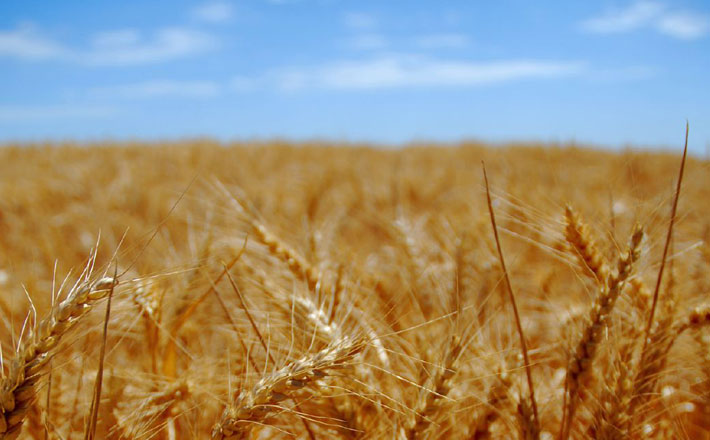Commentary on Ezekiel 17:22-24
Three seemingly random verses plucked from the middle of the book of Ezekiel.
They talk of springs and cedars, planting and bearing, bringing low and making high. Why does the lectionary provide this rather obtuse reading for us on this summer Sunday?
There is a method to this madness: the Gospel lesson for this Sunday, Mark 4:26-34, more than likely has in mind Ezekiel 17’s imagery of nesting birds on branches. So the shapers of the lectionary have chosen our brief Ezekiel reading to complement the Mark 4 reading.
Let’s see if this connection between Ezekiel 17 and Mark 4 brings forth some sermonic possibilities.
The fable in Ezekiel 17 concerns a cedar tree, an image already used earlier in the chapter but now expanded and adapted significantly. God will take a portion, a twig, from the top of a cedar tree and plant it on a high mountain. There it will grow mightily into a cedar, and birds will live in its branches. All the other trees in the surrounding field will know about this cedar and the God who planted it.
Of course, we are not talking about actual trees here as if God chooses to prune one specific ancient cedar, while raising up another particular cedar. We have a fable or allegory here in Ezekiel 17. Sort of like Jesus’ parables in Mark 4. We have left the realm of the literal to survey the realm of the story.
Parables can be adapted to fit multiple historical and social contexts.
The twig in Ezekiel 17 is often taken as a messianic figure (remember the branch imagery from the more familiar passage, Isaiah 11), who is planted on the high mountain of Zion. A messianic ruler in Jerusalem. This Davidic figure will bring protection and prosperity to the “birds” who live on his branches. And all the other trees around this noble tree will know that Adonai is God because of the figure. The parable then imagines a way forward for ancient Israel, a way that preserves some continuity with the old way of life — it is a twig from the top of a current tree. But a way that imagines something new as well. A new location. A new tree. New branches.
God’s direct intervention and initiative is well emphasized in this allegory. God takes, sets, breaks off, plants, brings low, makes high, dries up, and makes flourish. God controls the action in this parable. The tree will grow and produce fruit, but even these actions are under the watchful attention of God.
Given the exilic context of this promise, God’s provision is remarkable, as Zimmerli notes:
The saying of vv. 22-24 seeks to proclaim the faithfulness of God, in which [God] holds fast to [God’s] promises in [God’s] history. The old promise given through Nathan to David in the name of God in 2 Samuel 7, that God would give to the people Israel a king from the house of David, was not to be allowed to die out through the catastrophes which Israel had suffered as a consequence of the self-determined action of the contemporary descendant of David.1
God has a plan for how to start anew. This plan will involve a simple and small sprig but will become a lofty and towering cedar. It is not clear if the prophetic passage is playing around with this small-to-large theme, i.e., God starts with something small to create important movements. It may be that the smallness of the twig is because of the focus on an individual who is selected from the people of ancient Israel.
In Mark 4, Jesus relies on the image of branches as protection and shade as he tells the parable of the mustard seed. Instead of using the image of a mighty cedar, Jesus speaks of the kingdom of God as a small mustard seed that grows into a large bush with branches. This parable also takes up this notion of starting small—a seed or a twig — and growing larger — a bush or a tree — in order to provide nourishment and protection to “the birds of the air.” Here the emphasis does lie on the small seed to become a larger plant. As the contemporary Christian song reminds us: “It only takes a spark to get a fire goin’.”2
Mark’s small seed probably refers on some level with the suffering Markan community who awaits the end. In this way, the passage connections back to Ezekiel’s community who also found themselves in a place of suffering during exile. In those places and times of hardship, it seems appropriate to think about the newness and change and hope that comes when God takes twigs and makes cedars. But even if it doesn’t start small, renewal and hope are alive in our passage from Ezekiel.
Notes:
1 Walter Zimmerli, Ezekiel 1 (Hermeneia; Philadelphia: Fortress Press, 1979), 368.
2 http://www.hymnary.org/text/it_only_takes_a_spark_to_get_a_fire_goin


June 14, 2015